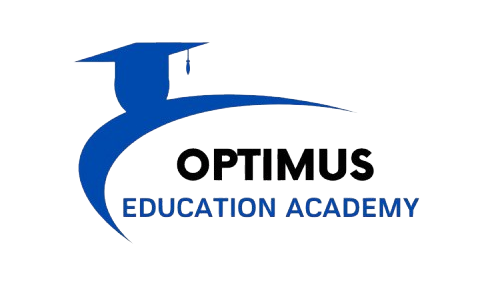BSc (Hons) Business And Tourism Management With Foundation Year
The BSc (Hons) Business & Tourism Management is a four-year program, including a Foundation Year, offered at our campuses in London, Birmingham, Leeds, and Manchester.
Tourism is a key part of the service sector, contributing significantly to the economy of many regions and countries. This course provides you with the skills and knowledge needed to pursue a successful career in business and tourism management.

Course Overview
With the ongoing economic challenges in the travel and hospitality sectors, it is more important than ever to support the sustainability and growth of this global industry, which provides millions of jobs.
This business and tourism management course will equip you with the skills and knowledge to explore a wide range of opportunities in the tourism sector. Whether you plan to work for local, national, or international companies or aspire to start your own business, the possibilities are endless.
A degree in this field will also provide valuable transferable skills applicable across various careers. You will develop expertise in leadership, business operations, strategy, and entrepreneurship—essential for driving the industry forward.
For those passionate about tourism, this course offers the insights and practical knowledge needed to succeed. You will explore key aspects of tourism, including:
– Assessing demand
– Understanding the environmental impact of travel
– Ethical considerations and community engagement
This program provides both foundational and specialized knowledge, preparing you to make a meaningful impact in a vital global industry.
Intakes
Duration
Made of study
Awarded Degree
BSc (Hons) Business And Tourism Management
UCAS Points
Fees
- Curriculum
- Entry Requirements
- Assessment
- Tuition Fees & Financial Support
Year 0 (Foundation)
– Academic Skills for Higher Education (0 credits)
– Business and Ethical Awareness in the Tourism Workplace (0 credits)
– Introduction to Communication and Digital Skills (0 credits)
– Introduction to the Tourism Industry (0 credits)
– Understanding the Tourist (0 credits)
– Foundation Year Project (0 credits)
Year 1
– Business Environment (20 credits)
– Fundamentals of Business Finance (20 credits)
– Organisational Behaviour (20 credits)
– Tourism and Society (20 credits)
– Tourism Marketing Principles (20 credits)
– Tourism Product Management and Industry Analysis (20 credits)
Year 2
– Entrepreneurship in Tourism (20 credits)
– Human Resource Management (20 credits)
– Introduction to Research Methods (20 credits)
– Principles of Operations Management (20 credits)
– Tourism Contemporary Issues (20 credits)
– Tourism Impacts and Sustainable Development (20 credits)
Year 3
– Destination Management (20 credits)
– Global Strategic Management (20 credits)
– Leadership and Change (20 credits)
– Research Methods 2 (20 credits)
– Dissertation (40 credits)
For Applicants Under 21 Years Old:
– Minimum of 80 UCAS tariff points or a 60 Credit Ofqual qualification at level 3.
For Applicants Aged 21 and Older:
– If standard entry requirements are not met, applicants may still be considered based on life and work skills that demonstrate suitability for undergraduate study through our Foundation program.
For All Applicants:
– Each applicant must be assessed by the admissions team through an interview to evaluate listening and speaking skills, as well as a written personal reflection statement.
Documents Required:
– Application form
– Supervised personal reflection statement
– Personal interview
This course includes both informal and formal assessments to help you develop your understanding and skills. Before your final graded assessments, you will complete informal formative assessments, which are designed to support your learning but do not contribute to your final mark.
Each module typically includes at least one formative assessment, providing you with valuable feedback to build your knowledge and confidence. Engaging with these assessments is important, as students who skip them often struggle to progress through the Foundation Year and beyond.
Formal summative assessments take place towards the end of each module and determine your final marks. These may include written exams, reports, portfolios, essays, and presentations. Assessment methods are reviewed annually and may be updated based on student feedback or external expert recommendations to ensure academic quality and relevance.
You can apply for financial assistance with your fees through the government by visiting [www.gov.uk/studentfinance]. This assistance may include a Tuition Fee Loan, Maintenance Loan, or Maintenance Grant.
Tuition Fee Loan:
This loan covers your upfront fees and is paid directly to your university or college. You will need to repay the loan once you finish your course and start earning £26,575 or more per year. Both full-time and part-time learners are eligible to apply.
Maintenance Loan:
If you qualify, you can also apply for a Maintenance Loan, which is paid directly into your bank account at the start of term. Repayments begin only after you leave your course and when your earnings exceed £26,575. For more information, please visit Student Finance.
Maintenance Grants:
These grants are paid into your bank account at the start of term and do not require repayment. However, any funds received will reduce the amount of Maintenance Loan you can apply for.
New students must demonstrate that they have lived in the UK for five years prior to the course start date to be eligible for living cost support from Student Finance England.
Fees:
For more information about course fees, please click here or call us at Optimus Education.
